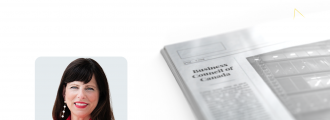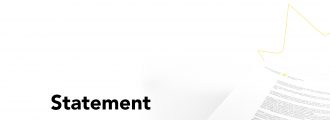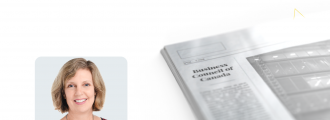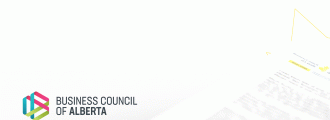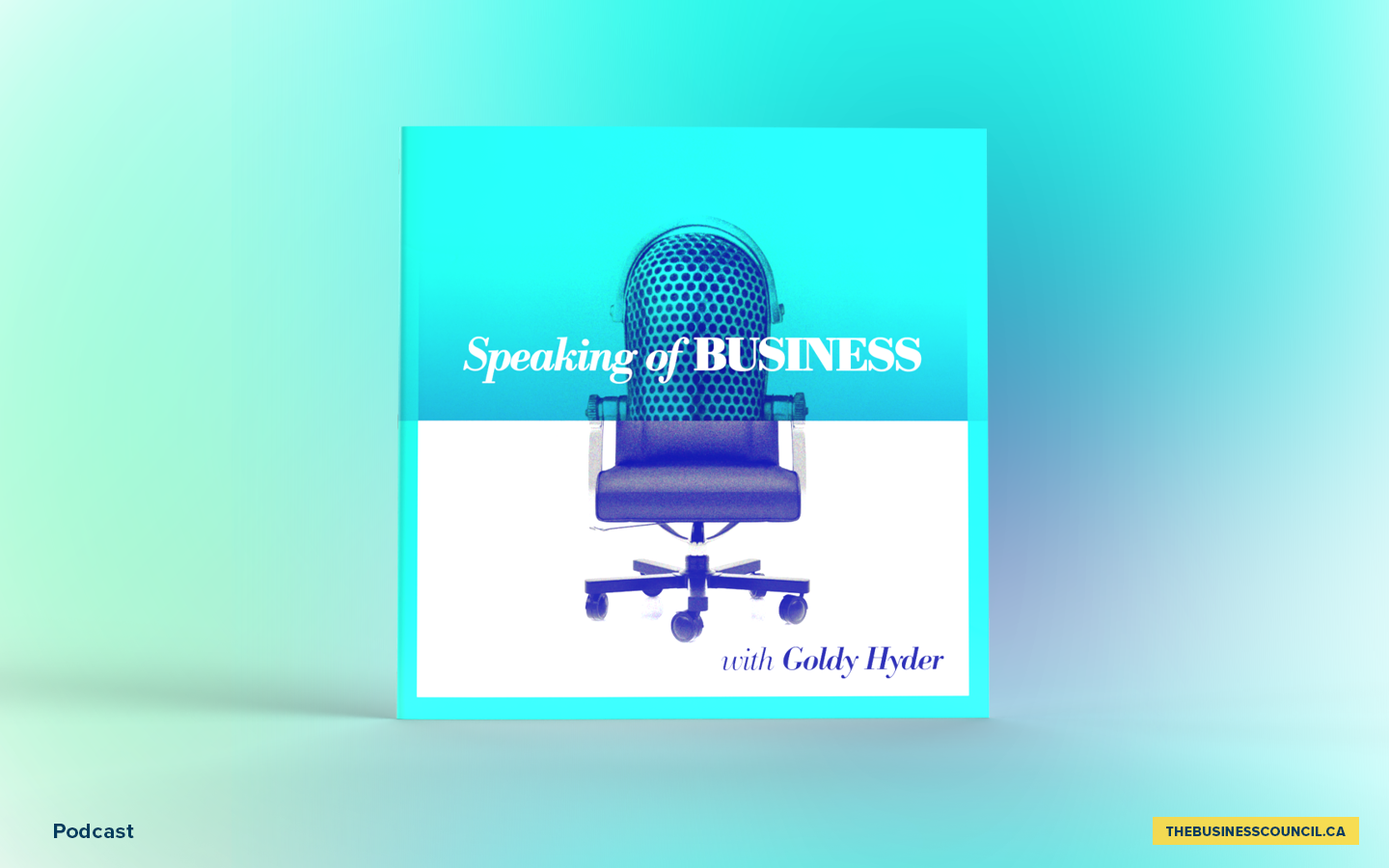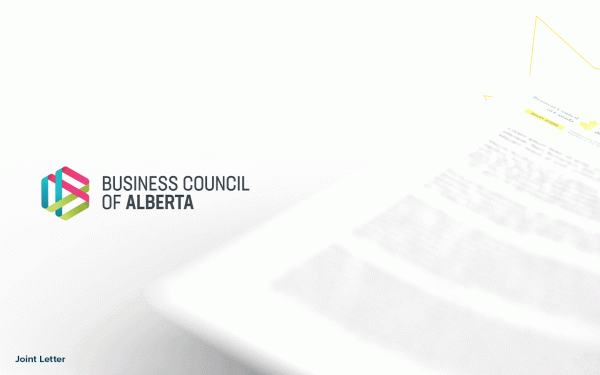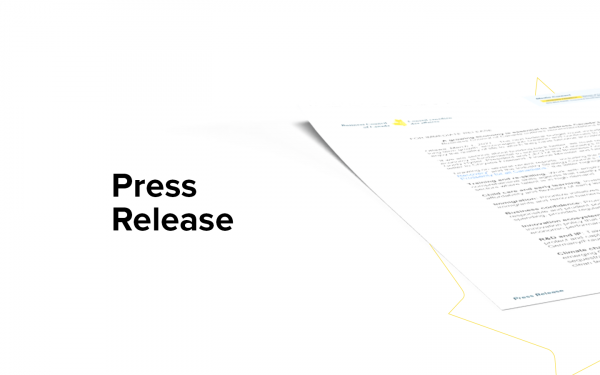All essential workers deserve our deepest, most heartfelt thanks
In light of the COVID-19 emergency, we’ve temporarily suspended our regularly scheduled series of conversations with Canadian CEOs. But we’re not going away. Instead, we’re going to pivot to the health emergency itself. We’re going to explore the impact on companies and workers across the country. And we’re going to find out how business leaders are responding to crisis.
Dean Connor, President & CEO of Sun Life Financial discusses rapidly bringing his global leadership team and workforce together during the COVID-19 crisis, to go above and beyond for Sun Life customers.
Latest Podcasts
Transcript
Goldy Hyder:
This is a special edition of Speaking of Business. I’m Goldy Hyder of the Business Council of Canada. The COVID-19 pandemic is affecting us all in many different ways. In this special podcast series, we’re speaking with Canadian innovators, entrepreneurs, and business leaders to find out how they are affected by the emergency and how they’re responding.
Goldy Hyder:
Today we’re speaking with someone who thinks a lot about the health and well-being of Canadians. As president and CEO of Sun Life Financial, Dean Connor overseas an international network focused on both financial and personal health. How are his clients weathering the coronavirus storm? Let’s find out. Dean Connor, welcome to Speaking of Business.
Dean Connor:
Thanks, Goldy.
Goldy Hyder:
Well, we’ve had you on before, so you know the drill. I’m really looking forward to hearing what you’re seeing and hearing, especially because of the global nature of this virus and the fact that you’re a very global company. But before we start, why don’t you just give us a sense of this time of upheaval? How are you as a business responding and what are you hearing from the clients in terms of all the challenges they’re facing?
Dean Connor:
Well, this really is a remarkable time. Somebody said to me, might have been my 95-year-old father-in-law, he can’t remember a time since World War II, this is the biggest thing since World War II, so it really is extraordinary. The Sun Life team around the world has been amazing. We scrambled to work from home on March the 16th. Of course, our colleagues in Hong Kong and China were already there. Back in January and February, they were working from home, but the rest of the company really pivoted over that weekend. March 16th, we got our call centers stood up that week around the world. I think we were running 30,000 Zoom sessions a day, meeting sessions, so really phenomenal response from the team around the world, focused on clients and focused on each other.
Dean Connor:
In terms of the clients, of course, many individuals are concerned about their health, so we’re putting out lots of information to supplement what’s coming through public health services, trying to make it easier for them. So for example, we made it possible to have virtual consults with paramedics and other professionals, and generally just lots of concern about health and about coverages, and more recently that is moved into how do I pay my premiums for my insurance, or how are my assets doing? How’s my pension account doing? How should I think about that, to everything from… In the United States, of course, there’s new rules that have just been rolled out, and our clients are trying to figure out how to navigate them. Like with many businesses, many different client concerns and the whole company is galvanized around trying to help clients.
Goldy Hyder:
Well, as you know, we are in truly unprecedented times, certainly in our lifetime, and there’s a high expectation obviously when you’re in a service business for responsiveness to the kinds of questions that your clients are asking. What are you doing to keep your staff equipped and capable of addressing those kinds of questions when really not all of them have pretty clear answers, do they?
Dean Connor:
Yeah, so we are trying to innovate on the fly, push decision making down, share these stories, so we’re doing a whole series of video chats, ask me anything kinds of chats around the company. I’ve been recording every three or four days and posting on our workplace intranet a three, four minute video on things going around the company, things that I’m seeing, including decisions we’re making for clients, with clients that give people a sense of the tone in how we’re responding.
Dean Connor:
I’ll give you an example. We had unfortunately one of our clients in Canada succumbed to COVID-19 last week, and one of our people called up this man’s wife who herself was quarantined, and she had no food and no money. So what turned into a kind of a normal consolation call trying to console her turned into a, “Okay, well let’s get you food and let’s get you an advance on your life insurance policy.” When you share examples like that around the company, the whole company first of all says, “Yes, this is why we’re in this business to help people,” and second of all, you get clues about how we need to go the extra mile, so telling stories, getting people at all levels, leaders to communicate with people on stories like that and what’s expected.
Goldy Hyder:
Well, it’s really important that those kinds of stories get out because this is a human story when all is said and done, so thank you for sharing that. I was struck by your comment that it’s in a time of crisis that you’re actually pushing decisions down and you’re allowing it to be made at a more local level. It kind of seems almost counterintuitive in a way when you do crisis management that decisions somehow need to flow up. Is that a lesson for you here?
Dean Connor:
Well, first of all, it’s a necessity because the incoming questions and demands, whether it’s a tenant in one of the apartment buildings we own or a landlord who’s borrowed mortgage money from us looking for principal and interest relief, or a client with a question, I mean, these questions are just coming at us like crazy, so to do a good job answering them quickly, we need to push that decision making down. But maybe behind your question is something we’re giving more thought to, which is after we eventually come out of this, what have we learned and what can we preserve and protect, including how do you run faster and make decisions more quickly, and how do you push more decision making down? Because it turns out we can actually run at this pace and make decisions and trust people to make decisions. We don’t need to meet quite as long as we might have met in normal times, so that’s something we’re starting to think about.
Goldy Hyder:
That’s well said. I mean, I’ve been saying to many that if you want to honor the lives of those who die through this crisis at least make life better for those who lived at the other end, and I think that applies to all of us, whether it’s human beings or businesses, so good to see that that’s happening. Now speaking of doing good, one of the things that you just recently announced was a significant donation to help with the COVID crisis. Tell us what it is and tell us what that money will be used for.
Dean Connor:
We announced a donation of a million dollars to local community organizations to focus on people who have been most hard hit by COVID-19, so persons at risk in local communities, elderly people who need food banks, and so on, so we’re going to distribute that money in our key communities around the world. We’re going to leave it up to local groups who know the best and highest use of that money.
Dean Connor:
Another thing we just announced yesterday is in Canada, we’re rolling out virtual health access to all the members of our group benefit plans, which is over 3 million Canadians, will be able to access and we’re initially covering the cost of this. If you need to talk to a nurse practitioner or a physician virtually by Skype or Facebook or whatever, you can do that through Sun Life, and that’s an offering that we thought it’s exactly the right moment to put that out at a time when Canadians need that.
Goldy Hyder:
Was this personally important to you?
Dean Connor:
Yes. I mean, I think you try to put yourself in the shoes of young mothers who need to get their kid in to see a physician, and people are scared. People are nervous and healthcare workers are nervous. I have to say healthcare workers, the frontline workers, doctors, nurses, hospital support staff, first responders, and more broadly, all essential workers in grocery stores and everything else, they deserve our deepest, most heartfelt thanks for their extraordinary service and dedication at this time.
Goldy Hyder:
Yeah, well said. Let me ask you, as a global company, you’ve certainly seen how this issue has been managed by other parts of the world. Are there lessons that are still not too late for us to learn here in Canada and apply them?
Dean Connor:
You know, Goldy, I think one thing we all need to reflect on is why is it that we watched this tragedy unfold in China and Hong Kong? We watched it with quite a bit of intensity. We understood it to be incredibly infectious, and yet nobody connected the dots and said, “Wait a minute. There are millions of people a day traveling around the world, and what are the chances that they could bring that to other markets? What are the chances that that could spread?” And it was right in front of all of our noses, and so that’s something I think we need to reflect on. Why is that we didn’t see it as nations, and once we did start to see it, why didn’t we jump on it faster? And I give a shout out to you, the Business Council and business leaders in Canada for putting out a bold statement, I think it was on Sunday, March the 15th, hit the newspapers on the 16th saying, “Guys, we got to work from home instantly. We got to isolate ourselves.” Reflect on why didn’t companies, why didn’t countries jump on that faster?
Goldy Hyder:
Yeah, I think that’s… Look, there’s going to be a lot of lessons learned, and I asked in specific what we can learn and still do because the fact is this runway is longer than most people think, and I’m wondering as you look ahead here, what is it that concerns you the most about what you think lies ahead of us still?
Dean Connor:
We are at this peak of uncertainty, which never feels good. When you’re at the peak of uncertainty, you look ahead and you see a lot of fog. It never feels good. So as we come down from the peak of uncertainty and we start to see the curve flattening, my greatest fear is that we go back too fast in too lax a fashion, and we cause relapses and outbreaks that put us back into the soup. So I think we’re going to have to think long and hard, and we’re going to have to learn from China on this, and probably South Korea will be ahead of us as well. We’re going to have to figure out what is the best and most effective way to spool the economy back up in a way that is sustainable and we don’t find significant relapses.
Goldy Hyder:
Yeah, that’s well said. Look, lots we could talk about, Dean. I want to thank you for your time today. Thanks so much for sharing.
Dean Connor:
Thanks, Goldy.
Goldy Hyder:
So thank you, Dean Connor, president and CEO of Sun Life Financial. He’s also got a podcast on our regular program which I would encourage you to listen to. Today, however, is one in a series of special Speaking of Business podcasts we’ve been doing to talk about the impact of COVID-19. We’ve heard from a wide range of leaders, all with different perspectives and approaches to the crisis. You can find all our conversations wherever you get your podcasts or go to our website, speakingofbiz, that’s biz with a z, dot ca. I’m Goldy Hyder. Thanks for joining us.
